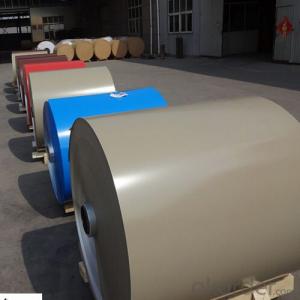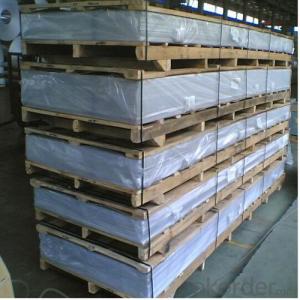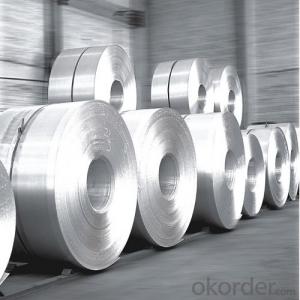Aluminum Coil Grade for Radiator with Competitive Price
- Loading Port:
- Shanghai
- Payment Terms:
- TT OR LC
- Min Order Qty:
- 5 m.t.
- Supply Capability:
- 10000 m.t./month
OKorder Service Pledge
OKorder Financial Service
You Might Also Like
Item specifice
1.Structure of Aluminum Coil Grade for Radiator Description:
They are widely used in construction and decoration, hardware and electric appliances manufacture, automobile manufacture and other industrial and civil purposes, such as electronic capacitor, rice cooker, refrigerator, computer casting, lamp shade, air-conditioner, cosmetics cover and box, air-conditioner radiator, inner container of disinfecting cabinet, ceiling board, automobile motherboard, cover board and top board, etc.
2.Main Features of Aluminum Coil Grade for Radiator :
1) Radiator
2) Condenser
3) Insulation Material
4) construction
3. Aluminum Coil Grade for Radiator Images:
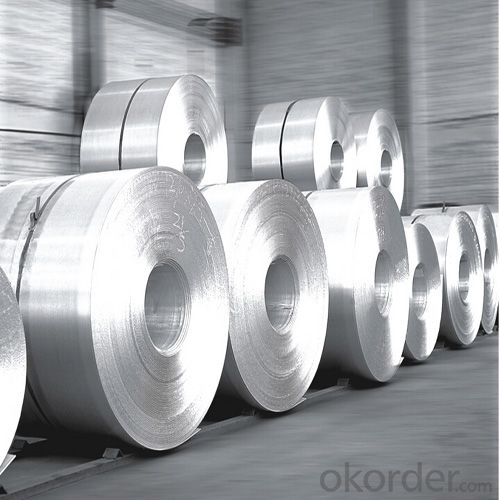
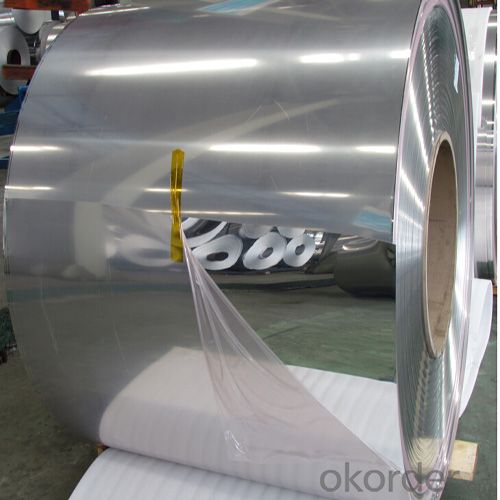
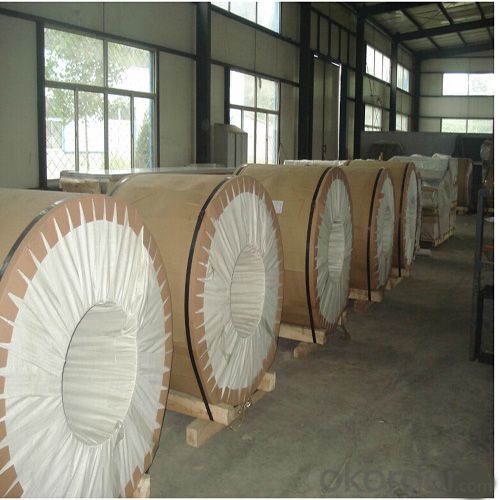
4. Aluminum Coil Grade for Radiator Specification:
Products | Alloy | Temper | Thickness(mm) | Width(mm) | length |
| Aluminum coil | 1XXX, 3003 8011, 3105 | H14, H16, H18, H24 , O | 0.08mm-6.0mm | 200mm-1500mm | 500mm-4000mm |
5.FAQ
Q1.How long have you been in this product?
A1:More than 10 years.
Q2. What's the minium quantity(MOQ)?
A2. 5 Metric tons
Q3. How long is shipping time?
A3. 7 (ready-made products)-25 days(OEM)
Q4. How do you guarantee the quality?
A4. 1. Cooperating and Exchaning experience with sevral quoted aluminum companies
2. Japanese and Swiss production line and skilled works (regular training and testing)
3. more than 10 years production experience.
Q5. Do you have after sale service?
A5. Yes. Any quality problem occurs within one year, pls take photoes,we will be responsible.
- Q:What are the different slitting options for aluminum coils?
- There are several slitting options available for aluminum coils, including shear slitting, rotary slitting, and razor slitting. Shear slitting involves using upper and lower blades to cut through the coil, resulting in straight edges. Rotary slitting uses circular blades that rotate at high speeds to slice through the coil, offering fast and efficient slitting. Razor slitting, on the other hand, utilizes sharp blades to make precise cuts in the aluminum coil. The choice of slitting option depends on the desired outcome and specific requirements of the application.
- Q:How are aluminum coils inspected for quality control?
- Aluminum coils are inspected for quality control through a combination of visual inspections and various non-destructive testing methods. These measures ensure that the coils meet the required specifications and are free from any defects or flaws. Visual inspections involve trained personnel carefully examining the coils for surface defects such as scratches, dents, or any irregularities in shape or size. The inspectors also check for any signs of contamination, oxidation, or discoloration. Any abnormalities detected during this visual inspection are noted and addressed accordingly. In addition to visual inspections, non-destructive testing techniques are employed to evaluate the internal quality of the aluminum coils. One commonly used method is ultrasonic testing, where high-frequency sound waves are transmitted through the coils. The reflected sound waves are analyzed to identify any internal defects like voids, cracks, or delaminations. This technique allows for a thorough assessment of the coil's integrity without causing any damage to the material. Another non-destructive testing method used for quality control is eddy current testing. This technique involves inducing electrical currents in the coils and measuring the resulting magnetic fields. Any variations in the magnetic fields can indicate flaws or defects in the aluminum, such as cracks or inclusions. Eddy current testing is particularly effective in detecting surface defects and discontinuities. Furthermore, measurements of important physical properties like thickness, width, and flatness are taken to ensure they meet the required standards. This is typically done using specialized instruments such as micrometers, calipers, or laser scanners. Overall, the inspection of aluminum coils for quality control involves a combination of visual inspections and non-destructive testing techniques to ensure that the coils are free from defects, meet the required specifications, and are of high quality.
- Q:I live around Minneapolis, MN. Is there a place that you can recycle crushed aluminum cans for money around here?
- Go to the Earth911 website. Enter in your zip code and it will give you a list of recyclers closest to you. Minnesota does not have a can bottle deposit so the money you get will be for the scrap metal.
- Q:Can aluminum coils be used for nameplates and labels?
- Yes, aluminum coils can be used for nameplates and labels. Aluminum is a versatile material that offers several advantages for this purpose. It is lightweight, yet durable, making it suitable for various applications. Aluminum also has excellent corrosion resistance, making it ideal for outdoor use or in environments with high humidity. Additionally, aluminum can be easily stamped, embossed, or engraved, allowing for the creation of intricate designs and detailed text. It is also possible to coat or anodize aluminum coils to enhance their appearance or provide additional protection. Overall, aluminum coils provide a reliable and cost-effective solution for nameplates and labels.
- Q:What are the different widths available for aluminum coils?
- The manufacturer and specific application can cause the widths available for aluminum coils to vary. Nevertheless, the typical widths for aluminum coils can be as small as 12 inches or even larger than 60 inches. These measurements are usually in inches and can be tailored to suit industrial or commercial requirements. Choosing the right width for aluminum coils is vital as it directly influences the efficiency and effectiveness of processes like manufacturing, construction, and transportation. Furthermore, the width of aluminum coils can affect the cost and accessibility of the material, making it a significant factor for both buyers and suppliers to take into account.
- Q:Are aluminum coils suitable for signage and advertising applications?
- Yes, aluminum coils are suitable for signage and advertising applications. Aluminum is a durable and lightweight material, making it ideal for outdoor signage as it can withstand various weather conditions. It also offers a sleek and professional appearance, allowing for high-quality graphics and branding to be displayed. Additionally, aluminum is highly customizable, easy to work with, and has good resistance to corrosion, making it a popular choice for signage and advertising purposes.
- Q:why do we use copper more than aluminum? give some characteristic of copper that makes it better then aluminum?
- Unless you have a specific purpose in mind, I don't think copper is used as much as aluminum. Aluminum was used in house wiring for a short time because it is less expensive than the usual copper, but something about it caused house fires. (I think it was thermal expansion caused connections in switches to loosen creating connections that would heat up, or spark.) Copper is preferred for house wiring. Copper is about 3 times more dense, so Al is used where light weight is a consideration. I can't remember the last time I drank something out of a copper can.
- Q:What are the effects of casting temperature on ductility of aluminum coil?
- The tensile strength and ductility increase with the solid solution insulation time, and reach best fit at 1 hour. Continue thermal insulation, and the tensile strength will change little while the ductility will reduce. This is because the solid solution over insulation will cause the work pieces crystallize so that the large crystal reduce the plasticity.
- Q:Are aluminum coils affected by magnetic fields?
- No, aluminum coils are not affected by magnetic fields as aluminum is not a magnetic material.
- Q:Are there any safety concerns when handling aluminum coils?
- When handling aluminum coils, there are several safety concerns that need to be addressed. One of the main concerns involves the risk of injury from the sharp edges of these coils. Typically, aluminum coils are formed into long, thin sheets that may have sharp edges. Therefore, it is crucial to handle them with care and wear appropriate protective gloves to avoid cuts and abrasions. Another safety concern pertains to the weight of the coils, which can lead to potential injuries. Aluminum coils can be quite heavy, especially when they are stacked together. To prevent strains and back injuries, it is important to utilize proper lifting techniques and equipment. Moreover, there is a potential fire hazard associated with handling aluminum coils. Due to its high flammability, aluminum can ignite if exposed to sparks, open flames, or high temperatures. It is imperative to store and handle aluminum coils away from any potential ignition sources. Additionally, ensuring that the area is well-ventilated is crucial in order to prevent the accumulation of flammable vapors. Lastly, it is essential to be aware of the potential health risks linked to aluminum. Although aluminum itself is not highly toxic, there is evidence suggesting that prolonged exposure to high levels of aluminum can be detrimental to human health. Therefore, taking appropriate precautions, such as wearing respiratory protection in dusty environments and following proper hygiene practices, is vital to minimize the risk of exposure. In conclusion, by receiving proper training, adhering to safety guidelines, and taking necessary precautions, the risks associated with handling aluminum coils can be minimized.
1. Manufacturer Overview |
|
|---|---|
| Location | |
| Year Established | |
| Annual Output Value | |
| Main Markets | |
| Company Certifications | |
2. Manufacturer Certificates |
|
|---|---|
| a) Certification Name | |
| Range | |
| Reference | |
| Validity Period | |
3. Manufacturer Capability |
|
|---|---|
| a)Trade Capacity | |
| Nearest Port | |
| Export Percentage | |
| No.of Employees in Trade Department | |
| Language Spoken: | |
| b)Factory Information | |
| Factory Size: | |
| No. of Production Lines | |
| Contract Manufacturing | |
| Product Price Range | |
Send your message to us
Aluminum Coil Grade for Radiator with Competitive Price
- Loading Port:
- Shanghai
- Payment Terms:
- TT OR LC
- Min Order Qty:
- 5 m.t.
- Supply Capability:
- 10000 m.t./month
OKorder Service Pledge
OKorder Financial Service
Similar products
New products
Hot products
Hot Searches
Related keywords
